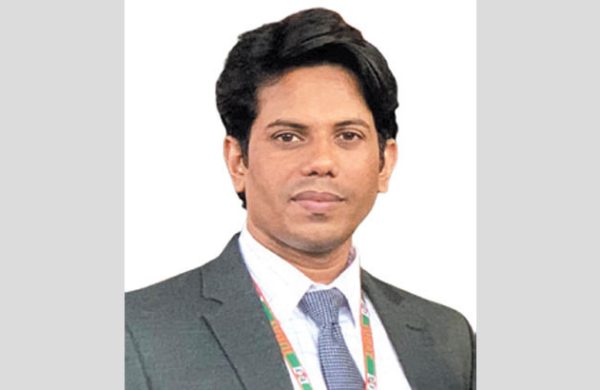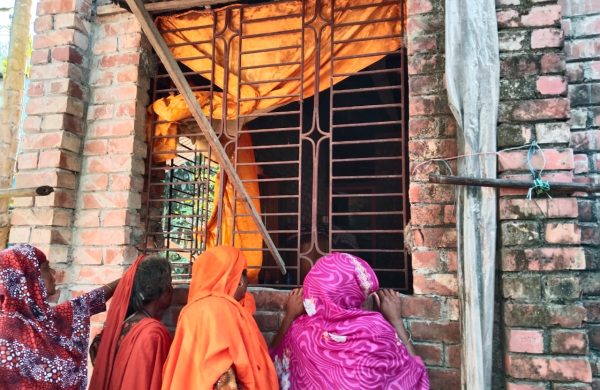Bangladesh in the age of global economic flux
- Update Time : Sunday, July 27, 2025

—Abdullah Shibli—
Any casual observer of the recent global scenario can see a constant shift in global crosscurrents. Experts have characterised the present situation as a “state of flux.” It would not be too much to assert that in the coming years, we will witness a shift in geopolitical norms and alignments, and may even see a decline in Western economic hegemony. The US and its allies will make way for the rise of China and India, which may foster growth and influence in the Third World. Bangladesh needs to gear up for this new world and be ever vigilant for new possibilities, and claim its share in this new economic order.
So, one may ask, what do I mean when I say that we are in a “state of flux?” First of all, I am referring to the state of affairs in the domestic and international milieu, where things are constantly changing and unstable. Domestically, Bangladesh has managed to transform its political and economic landscape after a decade and a half of semi-autocracy, kleptocracy, and crony capitalism, to one where free elections, the rule of law, and freer markets are within reach. Unfortunately, events of this month also suggest that things are not yet settled and are still in the process of reaching the goals set by the democratic movement.
Secondly, in the international arena, there is a lack of certainty, and economically, we have entered a period of transition, marked by the ongoing tariff war and superpower rivalry for control of supply chain relationships following the Covid pandemic and the Ukraine war. Donald Trump and his administration have seized the moment and managed to stir up issues in the financial and commercial sphere, which portends a major global realignment.
It is legitimate to ask: what does Bangladesh need to do to stay ahead in this environment? One lesson from recent experience: our leaders and economic policymakers must remain vigilant and be prepared for the twists and turns that may come in the future, steering the course to avoid the maelstrom and face the headwinds we will encounter in the coming months. It is encouraging to note that our media and thought leaders are right on the money, reminding the government of its failures and the necessity of being proactive. We understand that the interim government (IG) has too much on its plate. Nonetheless, it has also demonstrated a lack of concrete plans, preparedness, and a consistent, long-term commitment in some areas. Tariff negotiations, asset recovery initiatives, and civil disorders are just a few of the areas of everyday concern for the citizenry.
The IG to be better prepared for international negotiations and take steps to avert a repetition of the faux pas that was evident during the recent US-Bangladesh meeting held in Washington, DC. The newly emerging press freedom has offered the print media the opportunity to collaborate with the government and provide constant reminders to avoid a bureaucratic mindset, while sounding a warning against the laissez-faire mode that appears to be settling in.
Bangladesh is facing some uncertain times ahead. The reason for this enhanced state of instability is the political situation in the country, global economic uncertainty, and the environment that is being created due to the economic policies of the US government. There are other sources of uncertainty, including the realignment of geopolitical forces, the role of China, and the settlement of the Middle East war. However, for Bangladesh, this is also the time for constant vigilance and reconnaissance. Selim Jahan echoed these views when he wrote, “Bangladesh must assess what the real outlook and motives of the US are and formulate its trade negotiations strategy accordingly.”
Some of these concerns have been addressed by economist and management guru Mohammed El-Erian, president of Queens’ College, University of Cambridge, and Renee Kerns Professor of Practice at the Wharton School of the University of Pennsylvania. In an article titled, “Is America Breaking the Global Economy? What an Age of Economic Uncertainty Will Mean for the World,” El-Erian writes about the deep uncertainty in the outcome for the future of the global economy. He offers two possible scenarios in the current issue of Foreign Affairs. In the optimistic view, he foresees an economic restructuring similar to that which took place about four decades ago during the Reagan-Thatcher era. In the less rosy picture, the US and the global economy could experience stagflation or recession, but also encounter pronounced financial instability.
Mohammed El-Erian offers some insights on navigating these uncharted waters. With little prospect for stability, governments, companies, and investors will need to do more to insure themselves against potential damage. They must be agile and flexible. They need capital and human resilience, so they can absorb setbacks and fund new initiatives. And they need to be open to fresh ways of thinking and behaving. “If these actors can become more nimble, they will survive the volatility—and perhaps emerge better for it. But if they freeze up, they will undermine the well-being of both the world’s current generations and its future ones,” he says.
The International Economic Association (IEA) has convened a multinational working group named the “Working Group on Reconstructing the World Economic Order” to discuss a framework for countries with conflicting interests to negotiate with each other. Scholars from prestigious academic institutions including Harvard University, the London School of Economics, Tsinghua University, the National University of Singapore, the Economic Research Institute for ASEAN and East Asia (ERIA), and the Chinese Academy of Social Sciences are members of this group.
Since relations among states and other actors are more likely to be regulated by a complex, partial, sometimes inconsistent, and ever-changing set of rules, norms, and procedures, the IEA seeks to develop a framework to provide the procedures and standards for countries to negotiate their bilateral or multilateral relationships and avoid the conflicts that we see today.
For developing small countries like Bangladesh, policymakers and market participants need to recognise that we have entered a new phase known as the “vigilant economy.” This term refers to an economic state where elected leaders take initiatives to monitor economic indicators and potential risks closely, and are prepared to adjust policies or strategies as needed. It implies a cautious approach, acknowledging progress in some areas but remaining alert to factors that could derail that progress or create new challenges. Concerns about persistent inflation, potential economic slowdowns, or geopolitical uncertainties will drive this vigilance.
—————————————————————————-
Dr Abdullah Shibli is an economist and employed at a nonprofit financial intermediary in the US. He previously worked for the World Bank and Harvard University.



















